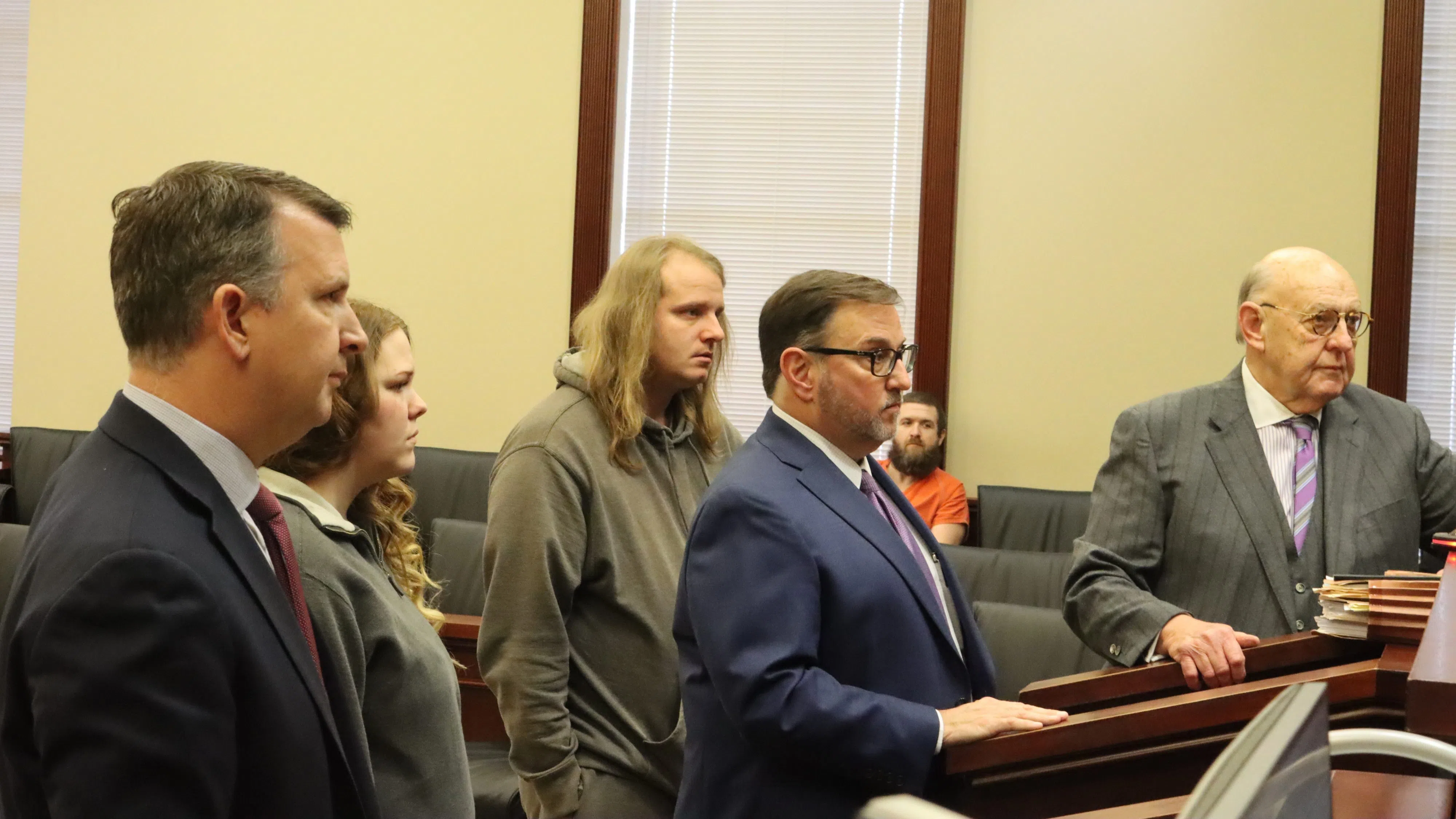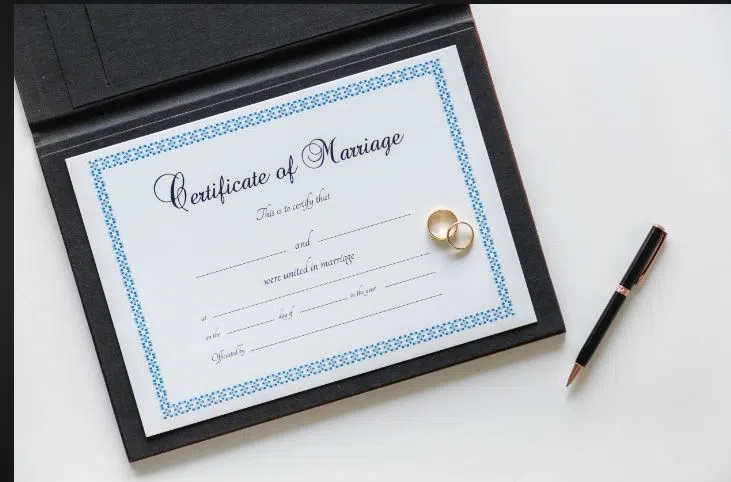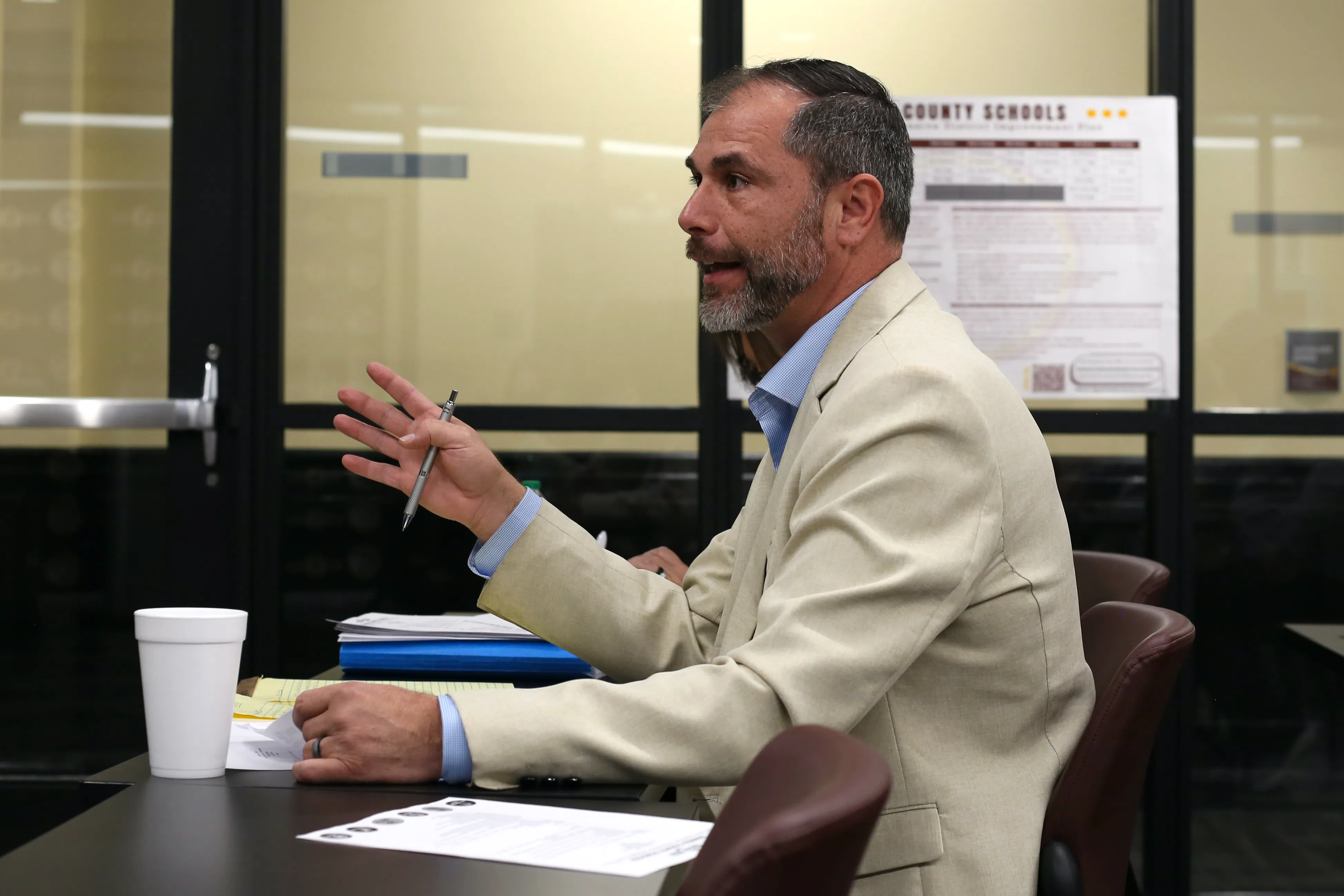By MELINDA J. OVERSTREET
for Glasgow News 1
Attorneys for two defendants scheduled to stand trial next month for causing the 2021 death of a 19-month-old child continue to seek more information about how an expert witness for the prosecution reached the conclusions she did about what happened to the child.
Commonwealth’s Attorney John Gardner recapped the issue at a pretrial conference Monday before Circuit Judge John T. Alexander, stating that after he had filed a notice of his plan to use physician Melissa Currie as an expert witness, the attorney for one of the defendants, Devin Pierce, had filed a motion requesting a hearing regarding aspects of that witnesses’ testimony. It had been determined that a formal hearing was unnecessary, but the judge had ordered that Currie provide a list of the resources she consulted when preparing her report for the prosecution.
At a pretrial conference earlier this month, Gardner had reported he still didn’t have the information requested but had sent a follow-up request to the doctor. Monday, he said he had since received that information and had provided it to the defense attorneys. Ken Garrett is the attorney representing Serenity Brown who, along with Pierce, is charged with murder.
Gardner said he had received a letter from Pierce’s attorney, David Broderick, asking for the actual literature that was cited in that supplemental information that was received from Currie regarding the resources she’d consulted. The prosecutor said he had replied to the letter that he did not believe he was required to provide that to Broderick, based on the court’s order and previous comments by the judge.
Broderick said the judge had ordered the prosecution to produce the information she relied upon to form her opinion, and the disclosure he received listed about 10 articles “attached.”
“It was specific articles of medical literature [with] page numbers,” he said, and he was seeking actual copies of those articles, not just citations for them.
“I don’t have access to that material,” Broderick said. “I think I’m entitled to it.”
Alexander went back and reviewed the order he’d provided earlier and said he felt the disclosure received was not deficient and that it complied with his order, and he thought the defense could access those articles unless they hadn’t been published, but he believed they had been.
“Judge, there’s no question, in my opinion, they’ve been published,” Broderick said.
He said it’s medical literature accessed through their research engines.
Alexander asked him, “We don’t think we can find the Journal of Child Abuse and Neglect or the Journal of Pediatrics?”
Broderick said the doctor would have immediate access to it if she relied upon it.
Gardner said that at least the latter of those two medical journals, for example, is online, though there may be a cost for nonsubscribers to obtain the full text of the article.
He also added that in the defense’s expert witness report, that person had not provided a list of the resources he relied upon either, but he hadn’t mentioned that to the court previously.
“What’s good for the goose is good for the gander as well,” the commonwealth’s attorney said.
Broderick said the prosecution has had that report for about a year, “but our guy’s a retired state medical examiner.”
Ultimately, after several more minutes of discussion, the judge agreed that although he believed the information was accessible, somehow, he would provide another order for the doctor to provide, within two weeks, copies of any of those resources that were readily accessible to her, on hand, “as a matter of being as fair-minded as we can be.”
Alexander said this should not become an issue that delays the trial.
Broderick raised another issue of concern to him, which was that an officer had said some video had been deleted, but that officer had not been disclosed as an expert witness.
“And that’s an issue that’s going to come up at trial,” he said.
“Deleted, like, just based upon the retention schedule?” the judge asked.
“Correct,” Gardner said, adding that it’s his understanding there was not a subscription to access the camera footage inside the house, so it wasn’t retained.
Alexander asked Broderick if that was the kind of video he was talking about, and Broderick confirmed it was, but he questioned whether the officer had the kind of scientific knowledge required to know the footage was deleted.
Gardner said this sounded like something Broderick should lay out in detail in a motion, and they could address it when they came back in a couple of weeks.
“If the answer is that it’s no longer in existence, somebody would need to be able to explain why,” Alexander said. “‘It has been deleted’ is not the same thing as somebody saying, ‘I deleted it.’”
Broderick also raised the question of how many potential jurors the two defense attorneys would each be able to have stricken, or removed. The judge said that at the last pretrial conference, they had left that at expecting a motion to be filed on the subject.
Garrett said he believed that the standard rule is they would share a strike unless they had agreed in advance to have separate ones.
Broderick said he would file a motion regarding the juror strikes.
Likewise, Gardner said he would file a motion to have Broderick’s expert provide comparable information about his resources.
The next pretrial conference is March 3. The trial is scheduled for March 18-21.














